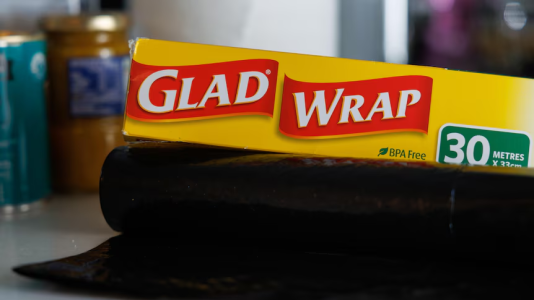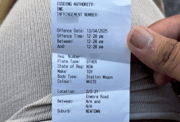Clorox hit with $8.25 million fine for misleading green claims—what you need to know
By
Maan
- Replies 4
Environmental claim are often at the forefront of consumer decision-making, especially when it comes to products marketed as sustainable.
But what happens when those claims turn out to be misleading?
What seemed like a green initiative has now led to serious consequences.
Clorox Australia, the company behind GLAD waste disposal and food storage products, was slapped with a hefty $8.25 million fine for misleading claims about its products’ environmental credentials.
The Australian Competition and Consumer Commission (ACCC) took action against Clorox after it was found that certain GLAD bags were marketed as being made from ‘50 per cent ocean plastic’.
Between June 2021 and July 2023, the company suggested that its GLAD to be GREEN ‘50 per cent Ocean Plastic Recycled’ Kitchen Tidy Bags and Garbage Bags were partly made from plastic waste sourced from the ocean.
However, the ACCC discovered that these products contained only about 50 per cent plastic waste collected from communities in Indonesia, located up to 50 km from the shoreline, and the rest was non-recycled plastic, processing aid, and dye.
The ACCC’s case was taken to the Federal Court, which ruled that the product packaging gave the misleading impression that the bags were made from ocean-collected plastic and that the ‘GREEN’ label suggested an environmentally-friendly product.
ACCC Chair Gina Cass-Gottlieb called the false claims a serious breach of trust, explaining that consumers often base their purchasing decisions on environmental claims.
She added: ‘Claims about environmental benefits matter to many consumers and may impact their purchasing behaviour.’
The court also noted that such misleading representations could erode consumer trust in the sustainability movement, undermining broader societal efforts to tackle environmental issues.
In 2023, the ACCC launched an investigation after receiving complaints about Clorox’s ocean plastic claims, prompting the discontinuation of the affected products by July of the same year.
Clorox, while acknowledging the court's ruling, stated that GLAD did not intend to mislead consumers.
‘While the ACCC and the Court recognised that Glad did not intend to mislead consumers, we respect this outcome and see this as an opportunity to further enhance our practices and reaffirm our commitment to offering products that help reduce environmental impact and meet consumers' evolving needs,’ a spokesperson for Clorox Australia said.
As part of the ruling, Clorox was not only required to pay the penalty but also ordered to implement an Australian Consumer Law compliance program, publish a corrective notice on its website, and contribute to part of the ACCC’s legal costs.
The court's decision served as a reminder of how critical it is for companies to be transparent and truthful when it comes to making environmental claims, especially given that many consumers are unable to independently verify such information.
Greenwashing, the practice of exaggerating or fabricating environmental claims, was at the heart of the ACCC’s case against Clorox, with a 2023 report showing that 57 per cent of surveyed Australian businesses had made concerning environmental claims.
The ruling underscored the importance of accurate environmental labelling in maintaining consumer confidence, with the court emphasising that only products with genuine environmental benefits should be marketed as such.
In a previous story, we uncovered how companies are using loyalty schemes to manipulate consumer behaviour.
It’s a surprising look at the tactics that businesses use to keep you hooked.
Be sure to check it out to learn more about how your favourite brands might be pulling the strings.

With so many companies jumping on the green bandwagon, how can consumers really tell which environmental claims are true? Share your thoughts in the comments below!
But what happens when those claims turn out to be misleading?
What seemed like a green initiative has now led to serious consequences.
Clorox Australia, the company behind GLAD waste disposal and food storage products, was slapped with a hefty $8.25 million fine for misleading claims about its products’ environmental credentials.
The Australian Competition and Consumer Commission (ACCC) took action against Clorox after it was found that certain GLAD bags were marketed as being made from ‘50 per cent ocean plastic’.
Between June 2021 and July 2023, the company suggested that its GLAD to be GREEN ‘50 per cent Ocean Plastic Recycled’ Kitchen Tidy Bags and Garbage Bags were partly made from plastic waste sourced from the ocean.
However, the ACCC discovered that these products contained only about 50 per cent plastic waste collected from communities in Indonesia, located up to 50 km from the shoreline, and the rest was non-recycled plastic, processing aid, and dye.
The ACCC’s case was taken to the Federal Court, which ruled that the product packaging gave the misleading impression that the bags were made from ocean-collected plastic and that the ‘GREEN’ label suggested an environmentally-friendly product.
ACCC Chair Gina Cass-Gottlieb called the false claims a serious breach of trust, explaining that consumers often base their purchasing decisions on environmental claims.
She added: ‘Claims about environmental benefits matter to many consumers and may impact their purchasing behaviour.’
The court also noted that such misleading representations could erode consumer trust in the sustainability movement, undermining broader societal efforts to tackle environmental issues.
In 2023, the ACCC launched an investigation after receiving complaints about Clorox’s ocean plastic claims, prompting the discontinuation of the affected products by July of the same year.
Clorox, while acknowledging the court's ruling, stated that GLAD did not intend to mislead consumers.
‘While the ACCC and the Court recognised that Glad did not intend to mislead consumers, we respect this outcome and see this as an opportunity to further enhance our practices and reaffirm our commitment to offering products that help reduce environmental impact and meet consumers' evolving needs,’ a spokesperson for Clorox Australia said.
As part of the ruling, Clorox was not only required to pay the penalty but also ordered to implement an Australian Consumer Law compliance program, publish a corrective notice on its website, and contribute to part of the ACCC’s legal costs.
The court's decision served as a reminder of how critical it is for companies to be transparent and truthful when it comes to making environmental claims, especially given that many consumers are unable to independently verify such information.
Greenwashing, the practice of exaggerating or fabricating environmental claims, was at the heart of the ACCC’s case against Clorox, with a 2023 report showing that 57 per cent of surveyed Australian businesses had made concerning environmental claims.
The ruling underscored the importance of accurate environmental labelling in maintaining consumer confidence, with the court emphasising that only products with genuine environmental benefits should be marketed as such.
In a previous story, we uncovered how companies are using loyalty schemes to manipulate consumer behaviour.
It’s a surprising look at the tactics that businesses use to keep you hooked.
Be sure to check it out to learn more about how your favourite brands might be pulling the strings.
Key Takeaways
- Clorox Australia was fined $8.25 million for misleading claims about its GLAD bags being made from ‘50 per cent ocean plastic’.
- The ACCC found that the bags contained plastic waste from communities in Indonesia, not the ocean as claimed.
- Clorox acknowledged the court's ruling and pledged to improve its environmental practices.
- The case highlights the importance of accurate environmental claims and the risks of greenwashing.
With so many companies jumping on the green bandwagon, how can consumers really tell which environmental claims are true? Share your thoughts in the comments below!
Last edited:








